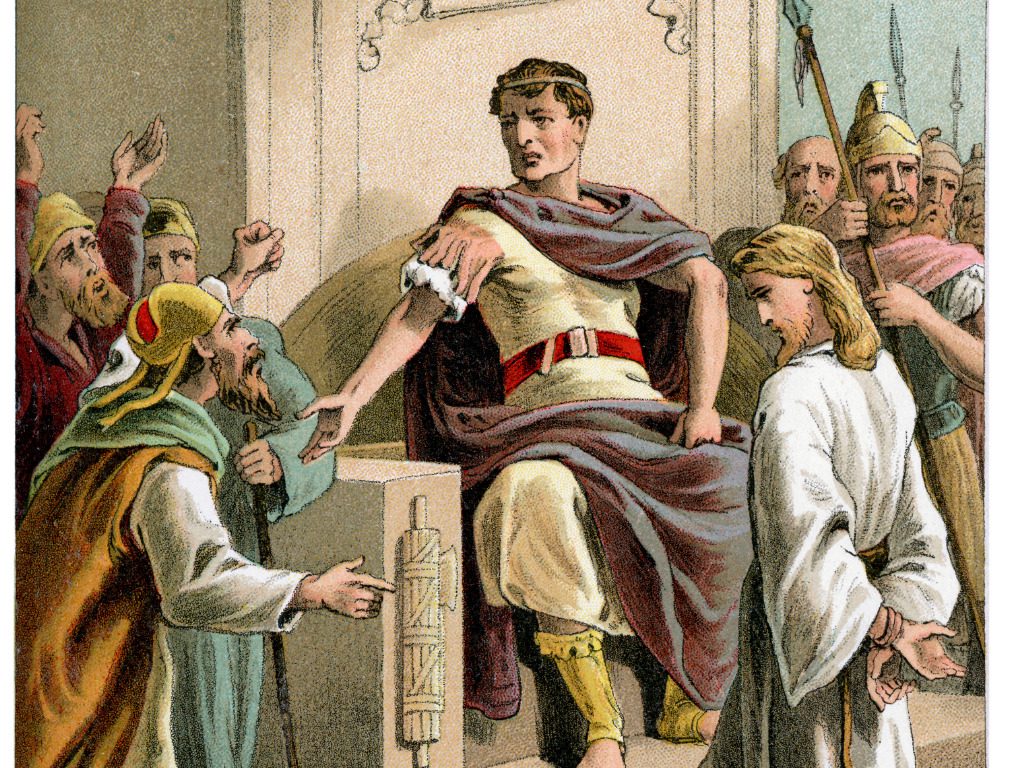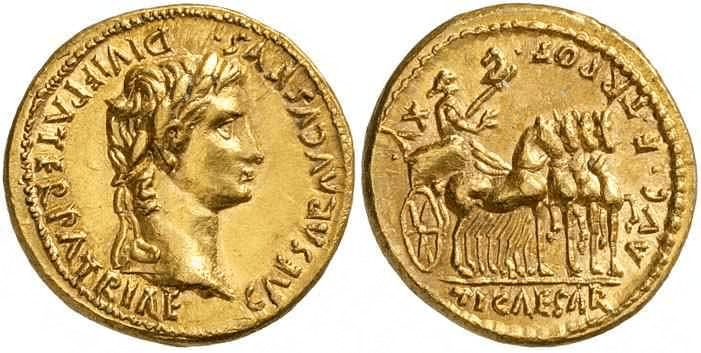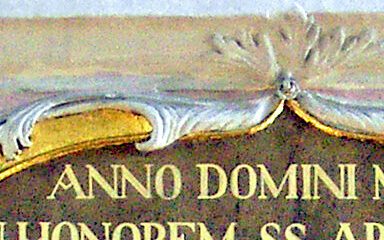Τίνα κατηγορίαν φέρετε κατὰ τοῦ ἀνθρώπου τούτου
“Tis katēgoria pherō kata ho anthrōpos hoytos?
John 18:29 – question of Pilate to the Jews who brought Jesus before him
“What accusation do you bring against this Man?”
Pilate’s question to those who brought Jesus before him is most appropriate for any judge of a man brought to law before the court.
Previously we discussed in Kings, Governors, Politicians & Priests – Power in the Palaces of Justice the political nature of the accusations of Jerusalem’s religious officials. We also addressed why the Jewish prosecutors brought their Messiah to the Roman Prefect, Pontius Pilate.
Then the Jewish leaders took Jesus from Caiaphas to the palace of the Roman governor. By now it was early morning, and to avoid ceremonial uncleanness they did not enter the palace, because they wanted to be able to eat the Passover.
John 18:28 NIV
John 18:
29 Therefore Pilate went out to them and said, “What accusation do you bring against this Man?”
30 They answered and said to him, “If this Man were not an evildoer, we would not have delivered Him to you.”
Did these Jewish religious prosecutors answer Pilate’s question – what charge against this man?
The Jewish officials make no specific charge before the judge of this court, the Governor Pilate. They indict Jesus as ‘an evildoer.’
31 So Pilate said to them, “Take Him yourselves, and judge Him according to your law.”
In effect, the Roman Governor of all the province of Judea acting as High Court Judge of Jerusalem tells them, ‘Case dismissed.’
Politics & Religion
If you read too quickly through the trial transcript (as we often do Scripture) you may miss more of the motivation and underpinnings of politics and religion in Jerusalem.
- Pilate (Governor and Judge) dismisses the case of the Jews against Jesus.
- The Prosecutors (Jewish officials) appeal his judgment immediately.
We'll return to the Praetorium of Pilate, but first the questions of politics.
Who is Pontius Pilate?

Pontius Pilate (Latin: Pontius Pīlātus [ˈpɔntɪ.ʊs piːˈlaːtʊs]; Ancient Greek: Πόντιος Πιλάτος, Póntios Pilátos) was the fifth governor of the Roman province of Judaea, serving under Emperor Tiberius from 26/27 to 36/37 AD.
Source: Wikipedia
- First, Pilate is Roman in every context of culture.
- Second, Pilate is a politician.
He was appointed by Roman leaders as Prefect for this challenging eastern extreme of the Empire. His ten year appointment means that Pilate has full understanding of Jerusalem’s politics of religion prior to the Jews bringing Jesus to trial.
It may be helpful to think of the Roman Prefect Pilate, governing from Herod’s elegant palace during every large Jewish festival, as a governor replacing the former kings – a sort of remote emperor of Rome.
He commands nearly 3000 troops, which Pilate can order at will to control Jerusalem’s crowds and zealous pilgrims. Jesus’ trial for Pilate falls only in the jurisdiction of keeping the pax Romana peace for Rome in Jerusalem.

To understand Pilate, Rome’s Governor, you first must understand the politics & religion of Rome.
Rome – 1st c. Anno Domini
We know the connection of Caesar Augustus to the birth {in approximately 6-4 BC} of Jesus Christ.
In those days Caesar Augustus issued a decree that a census should be taken of the entire Roman world.
Luke 2:1 NIV
But understand the politics of Caesar throughout the Empire over time and gain insight into Pilate’s politics in this trial of Jesus {in approximately AD 30-33} far-removed from Rome in distant Judea.

Caesar
Καῖσαρ, Καίσαρος , Caesar (properly, the surname of Julius Caesar, which being adopted by Octavianus Augustus and his successors afterward became an appellative, and was appropriated by the Roman emperors as a part of their title)
- Tiberius Caesar Augustus was the second Roman emperor, reigning from AD 14 to 37 (during the time of Jesus’ trial). He succeeded his stepfather, the Roman emperor Augustus. – source: Wikipedia
- Tiberius’s father, also named Tiberius Claudius Nero, a high priest and magistrate, was a former fleet captain for Julius Caesar. – source: Britannica.com
- Don’t miss this: he was a Roman soldier commanding a fleet AND a judge AND a high priest; that is military, governing and religious authority
- Emperor (Tiberius Caesar Augustus), ‘one of the greatest Roman generals’ appointed Pontius Pīlātus [ˈpɔntɪ.ʊs piːˈlaːtʊs] governor of the Roman province of Judea in AD 26/27 {a few years prior to Jesus’ trial for which he is best known}.
More about the politics & religions of Rome to come…
Page TWO - Please click Page 2 below for the questions.
We’ll return to the Pilate’s trial of Jesus Christ, but I would like to provide a few more resources about the politics and religions of the Roman Empire before we do.
To be continued...



Leave a Reply